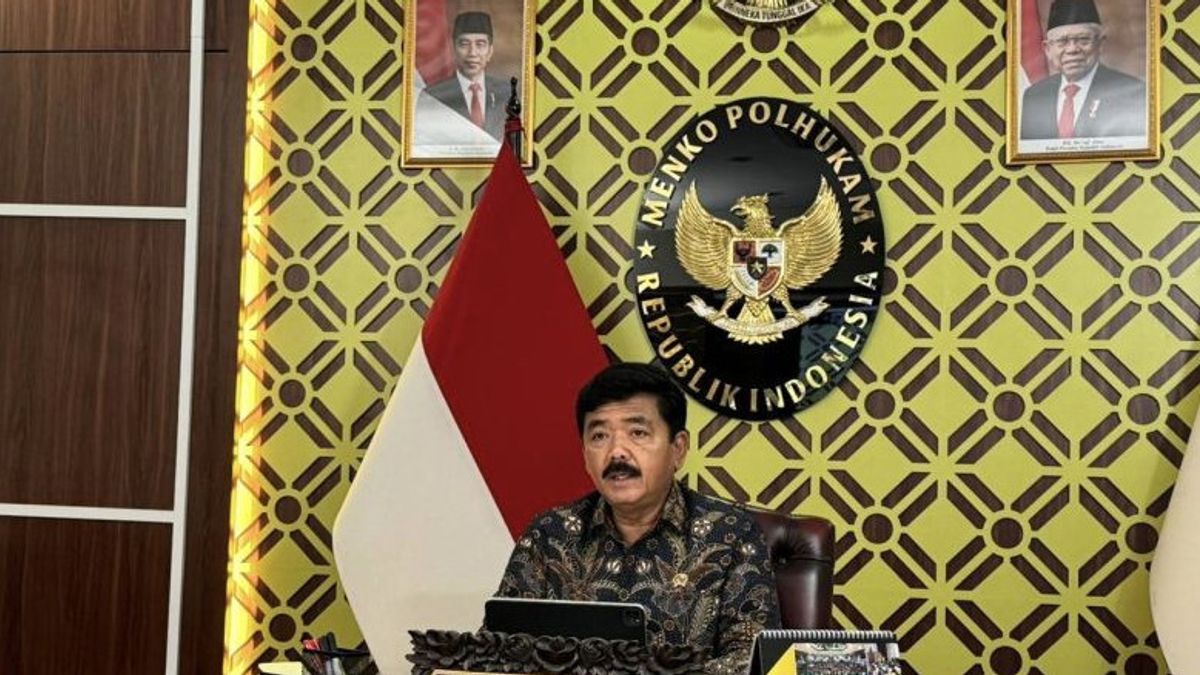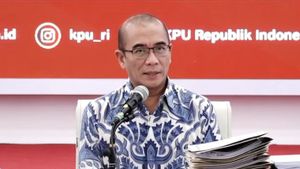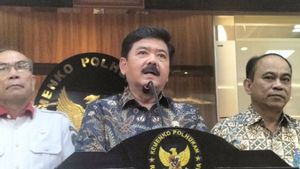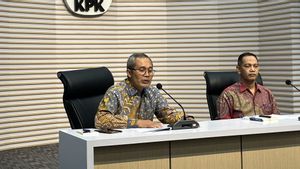Coordinating Minister for Political, Legal and Security Affairs Hadi Tjahjanto said Indonesia continues to be aware of the emergence of open conflicts in the South China Sea given that there have been a number of incidents in the disputed waters in recent years.
Hadi assessed that the potential for conflict is always there because there are overlapping claims of regional ownership in the South China Sea, especially since China imposes unilateral claims on the entire South China Sea region which refers to the history of (nine-dash lines).
"We also note that frequent incidents occur in the South China Sea region, which if not managed properly, will trigger open conflict," Hadi said during a speech at a discussion on the South China Sea held by Indonesia Strategic and Defense Studies (ISDS) reported by ANTARA, Tuesday, March 19.
Therefore, Indonesia, whose territory in the North Natuna Sea is also part of the South China Sea, also has an interest in managing the dispute so that the situation remains peaceful and conducive.
However, that goal is currently facing challenges considering that China unilaterally has also issued a map of the country which adds nine broken lines (nine-dash lines) to 10 (ten-dash lines). The claim also overlaps with Indonesia's exclusive economic zone (EEZ), precisely in the North Natuna Sea.
Not only that, Hadi assessed that disputes are getting more complicated because rivalry between the two superpowers, China and the United States is strengthening. China, on the one hand, is increasingly aggressive in placing its coast guard vessels in disputed waters, while the US is also building defense pacts, namely AUKUS (US, UK, Australia) and QUAD (US, India, Japan, and Australia) to stem China's influence.
SEE ALSO:
Regarding this situation, Hadi said that Indonesia was obliged to carry out its mandate to open the 1945 Constitution, including maintaining world peace.
"We don't want to see that the South China Sea region is actually used as a projection event for the strength of state major powers (addidaya countries, ed.) and become the epicenter of conflict. We must be able to turn the South China Sea into a sea of peace," said the Coordinating Minister for Political, Legal and Security Affairs.
He continued that Indonesia has so far been actively encouraging disputed countries to immediately agree on a code of conduct (CoC) in the South China Sea.
"On the initiative and encouragement of Indonesia as Chair of ASEAN in 2023, ASEAN and China have succeeded in agreeing to accelerate the CoC negotiations. We are targeting the CoC to be finalized within three years, namely by 2025," said Hadi.
Hadi is optimistic that if the document is successfully agreed upon, then it will be the basis for increasing mutual trust, especially in managing disputes and conflicts in the South China Sea.
The English, Chinese, Japanese, Arabic, and French versions are automatically generated by the AI. So there may still be inaccuracies in translating, please always see Indonesian as our main language. (system supported by DigitalSiber.id)

















